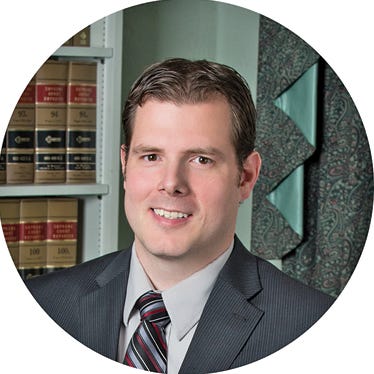April 26, 2021

About 60% of Americans do not have a will or other estate planning documents. If you die without a will, it means you die intestate and your assets likely will have to go through probate, a public and costly court process designed to ensure your assets go to the people they are supposed to, with government oversight.
When that happens, Chapter 852 of the Wisconsin Statutes provides for who gets your property, summarized as follows:
If you are married and all of your children are also your spouse’s children, then everything you own goes to your spouse.
If you are married, but you have one or more kids with someone who is not your spouse, then generally (though it can get complicated) one-half of your property goes to your spouse and the other half goes equally to your children who are not your spouse’s children.
If you have no surviving spouse, then everything goes equally to your children and to their children if a child dies before you.
If you have no children or spouse, then your property goes to your parents. If your parents are deceased, then to your siblings and if a sibling dies before you, then that sibling’s share goes to his or her children.
If none of the foregoing people are alive when you die, then your property goes one-half to your maternal grandparents’ side of the family (and their descendants) and one-half to your paternal grandparents’ side of the family. So, if your grandparents are deceased, that’s your aunts, uncles and your first cousins and their children.
If none of those people are alive, then your property goes to the State of Wisconsin school fund.
If you die intestate, a person has to outlive you by 120 hours to inherit from you. It should be noted that if you die without a will, only biological or adopted children inherit from you. Stepchildren and foster children do not.
If you and your spouse both die leaving young children, then the court must decide who will raise your children, including who would be in charge of your property for your children. As such, it could certainly be that your mother and your mother-in-law both want to raise your children and it could result in a bitter dispute with the judge deciding a “winner,” leaving bitterness between the two families for years afterwards. Of course, if no one wants to take care of your children, then they become wards of the state.
Power of attorney
When you contact an attorney to do an estate plan for you, most will strongly recommend that you do a health care power of attorney and a financial power of attorney at the same time. If you are in an accident and you become incompetent and/or incapacitated and you do not have either power of attorney, then again you have to go through a court process to have a guardian of the estate appointed to make financial decisions for you and a guardian of the person to make health care decisions for you.
Similar to probate, a guardianship is an expensive and time-consuming court process where the government gets involved in your life to make sure that the individuals serving as your guardians are acting in your best interests.
Of course, all of this can be avoided by hiring an experienced and knowledgeable estate planning attorney who takes the time to meet with you to understand your goals and objectives. Remember, too, that if you get a letter that a long-lost relative died with no close heirs except for you, chances are very high that it is a scam, since there are limits as to which relatives you can inherit from via intestate.
Halbach is a partner in the agricultural law firm of Twohig, Rietbrock, Schneider and Halbach. Call Halbach at 920-849-4999.
About the Author(s)
You May Also Like






